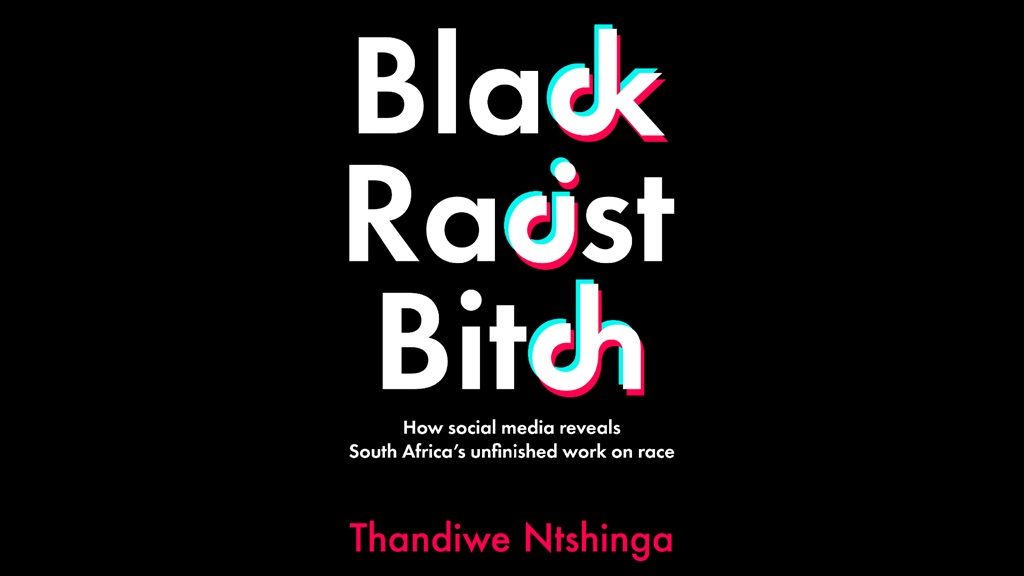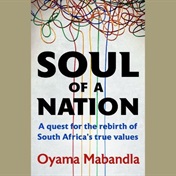
Thandiwe Ntshinga researched how Afrikaner farmers and farm workers, left destitute after the Anglo-Boer war, migrated to urban areas. Solving the ‘poor white problem’ became imperative for white governments in South Africa, because white racial superiority had to be preserved – and the road to apartheid began. When Thandiwe Ntshinga discussed this on TikTok, she was called ‘Black racist bitch’ – which got her into a the critical study of whiteness and ultimately led to her book, Black Racist Bitch: How Social Media Reveals South Africa's Unfinished Work on Race (Tafelberg). Ntshinga takes us through the global evolution of the project of whiteness, examining aggression, dispossession and tactical collaboration, and observes its effects on white people and white society. Ntshinga's reimagining of what it means to study racism, reverses the lens and makes apparent what is normalised and invisible. In this extract from her hard-hitting book, she reflects on the beginning of this process.
BOOK: Black Racist Bitch: How Social Media Reveals South Africa's Unfinished Work on Race (Tafelberg)
@ermelo_dude what’s up with the big words … you been reading a Readers Digest or something?
*sigh* I guess this is a good a time as any to introduce myself. I am a writer, researcher, anthropologist and editor. My academic work has been firmly rooted in critical whiteness studies where I focused on “poor whites” – the buffer and protectors of whiteness. Having moved on from poor whites and their racism, I am currently looking at white liberals as well as racism in white liberalism.
Lol your whole job is based off white people.
Social media as a digital field site
There has been a lot of furore in the US about Critical Race Theory (CRT), a discipline which emerged in academia and forms part of university study in several disciplines including history, sociology, anthropology, education, philosophy, religion and others. Its opponents claim that it has saturated society at different levels, including the alleged indoctrination of school children and the poisoning of the media and public life.
The assertion is that it is divisive and racist towards white people. It is sometimes referred to derisively in the shorthand “woke”.
Some South African right-wing and centre-right pundits have also led the charge in importing this panic with similar talking points. A notable figure is Helen Zille, former premier of the Western Cape and DA leader who claimed on Twitter that her book #Stay Woke Go Broke provides concrete examples of CRT operating in South Africa, claiming that it “destroys institutions rather than working to make them more equitable and inclusive”. She ended off ominously, “Be warned, SA!”
I have never been a fan of social media. My first Facebook page was made by my friends as a surprise when I was a teenager. The page did not stay up for long. Years later, I surprised everyone I knew at the time when I went onto Facebook. I still only have roughly 300 “friends” there today, after close to a decade.
Avoiding social media has been something I have been conscious of. I was fortunate enough to observe the effects social media has on mental health and social relationships. However, by the end of 2019, I came to accept that my avoidance of social media and an online presence would only serve to hinder my writing career. Thus, I started Instagram, Twitter and lastly, TikTok accounts. @Blackwomxnrants was my chosen handle when I decided to ‘bridge the gap’ by making my work in critical whiteness more accessible to the general (non-academic) public by getting onto social media after I completed my master’s degree.
As a Black womxn from a middle-class socioeconomic background, I am not naive to how my work and writing is received by those who benefit from the status quo and, at times, by those who do not. As seen in the comment “People quaaaaak [sic] at the sight of female intellectuals” from @kimnotkimberly.
No matter how well-researched my arguments, Black women speaking up results in general disapproval and dismissal. This transparent ploy was noted by @Casper van Zyl: “Sho, this guy’s comment is the ‘but she’s so eloquent’ microaggression, only severely stupid.” @Angela_ wrote: “Lmao I know I won’t be able to have a conversation with you” and @meta30 asked, “Do you smile?”
In as much as I have been empowered by embracing the “angry Black woman” trope, I own my rants. In my February 2021 TikTok video titled Decolonising the ‘angry Black womxn’ trope with the caption “don’t discredit Black anger”, I explained my stance. I can attribute anger to many of my writing successes so I have no shame in it. All over my comment section I replied, “As my handle would suggest, I am an angry Black womxn and I’ve written about it”. I mentioned one of my earliest pieces recounting my dreadful experience in Cape Town for the online publication, The South African, where I received my first bit of hate mail from a white woman who had tracked me down on Facebook – the first few words were enough for me to delete the message without opening it to see the rest of its content. After that, I shared a more recent article for the American publication aimed at a Black female audience, My Sister’s Magazine, where in my thirties, “I have decolonised my understanding of the angry Black woman trope with the teachings of mentors who have encouraged me to see my anger as my acute awareness of the injustices faced by myself and other Black womxn”.
Commenters saw through this stab at gaslighting in the comments, “not them trying to tone police you”, “no one gets to tell you how to feel or speak on race!!”, “we have every right to be angry” and “Are they asking you to be ‘positive’ or palatable?”
My social media accounts have never accomplished roaring popularity. I was on Twitter for a year before I deleted it, still unable to figure out how it actually worked and what made it interesting for other people. On Instagram, I had my peak of popularity during the time of the Black Lives Matter (BLM) protests when people briefly cared about anti-Blackness, racism and anti-racism.
The morning I found out about the black squares that were being posted in support of BLM, I opened up my Instagram to find a lot of attention on my page. I had been tagged by strangers wanting to show their solidarity. I reached a little over 1 020 followers. These numbers have dwindled since then. My social media game is weak. In 2021, I ventured onto TikTok as a means to an end as a writer, particularly one working as a freelancer.
For the few months that I was active on TikTok, my followers grew at a faster rate than any other social media platform. I had a couple thousand followers in a matter of weeks. My videos gained traction and people were engaging. Good and bad, I have had thousands of comments and tens of thousands views and likes on my critical whiteness videos.
The title of this book is taken from one of my early TikTok videos where I was referred to as a “Black racist bitch” or, to quote the cowardly commenter @user1558189788904, “and so are you … definitely a black racist bitch” for being a critical whiteness scholar. Such an oxymoronic phrase propelled with so much ignorant conviction. Me, a bitch? Maybe? I would say the answer to that would be dependent on who is being asked but as I will explain, being a racist is that type of oppression that can only be applicable to white people.
I slowly began introducing critical whiteness studies as a legitimate academic field of inquiry. “Black racist bitch” was just the beginning of a slew of racist, as well as misogynistic (what is known as misogynoir when applied to Black women), responses I received in reaction to my anti-racism teachings. I use white institutions, racial justice suppressors and upholders of white supremacist ideologies, social media platforms TikTok, Facebook, Twitter and YouTube as my field sites and the users that comment on these platforms as the subjects of analysis.




 Publications
Publications
 Partners
Partners











